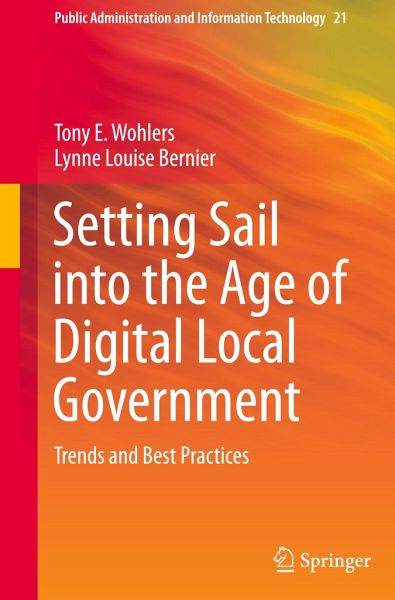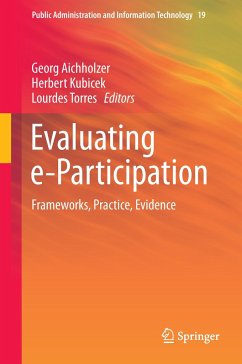
Setting Sail into the Age of Digital Local Government
Trends and Best Practices
Versandkostenfrei!
Versandfertig in 6-10 Tagen
38,99 €
inkl. MwSt.
Weitere Ausgaben:

PAYBACK Punkte
19 °P sammeln!
The Internet and related technologies havedramatically changed the way we live, work, socialize, and even topple nationalgovernments. As the Internet becomes increasingly pervasive across societies,we find more often that governments adopt Information CommunicationTechnologies (ICTs) as part of their toolbox for facilitating efficient andcitizen-oriented service delivery at all levels of government. Local governmentsacross the major industrialized democracies have not been an exception to thistrend and have set sail into the age of digital government. Closest to theircitizens, towns and cities...
The Internet and related technologies havedramatically changed the way we live, work, socialize, and even topple nationalgovernments. As the Internet becomes increasingly pervasive across societies,we find more often that governments adopt Information CommunicationTechnologies (ICTs) as part of their toolbox for facilitating efficient andcitizen-oriented service delivery at all levels of government. Local governmentsacross the major industrialized democracies have not been an exception to thistrend and have set sail into the age of digital government. Closest to theircitizens, towns and cities have adopted ICTs to facilitate electronicgovernment (e-government). While research on local e-government functionalityin terms of information dissemination, service delivery, and citizen engagementcontinues at an impressive empirical and methodological pace, gaps in ourknowledge remain. Cross-national comparative research on local e-governmentthat covers a wide range of municipalities in combination with in-depth casestudy analyses is lacking. Informed by a comparative case study approach, thisbook seeks to narrow that gap and offer practical policy solutions tofacilitate local e-government. We do so by pursuing both a macro and microperspective of e-government functionality in the federal republics of Germanyand the United States and unitary France and Japan. The macro perspectivefocuses on the state and scope of e-government functionalityacross a large number of randomly selected municipalities of all sizes in theseadvanced industrialized countries. Based on a small sample of case studies, themicro perspective analyzes the successful implementation of e-government inSeattle (United States), Nuremberg (Germany), Bordeaux (France), and Shizuoka City(Japan).












